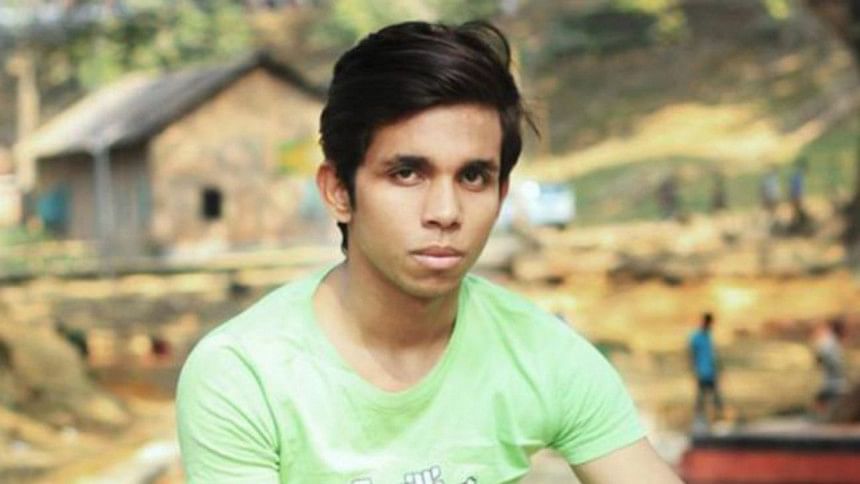A case of moral decrepitude

The senseless murder of a young NSU student, Saidur Rahman Payel, at the hands of the operators of a private intercity bus has shocked the nation to its core. What have we become as a nation? The bus conductors, presumably not much older than their customer-turned-victim, instead of trying to help an accidentally injured passenger, perpetrated the most heinous of crimes by bludgeoning the helpless man to death and dumping his body in a roadside ditch. Why—so that they can escape punishment for leaving behind a passenger at a pit stop along the highway!
Our roads are already among the deadliest in the world. Between six to nine thousand people are killed on the roads every year, while thousands more are injured, many disabled for life. We now have to contend with wilful assaults by transport workers on hapless passengers like the murdered NSU student, or the woman who was gang-raped on the bus in Dhamrai a couple of months ago.
These transport workers are not alien creatures. They are very much part and parcel of our society. It is very difficult to digest that our society is producing men with no empathy for their fellow humans; we are producing men with psychotic tendencies who will not hesitate to kill others to save or please their own skin. How has this come to pass in a society that once prided itself on its hospitality and charity towards others? Presumably, boy recruits, some as young as 10 years old, join as conductors and they gradually take over as drivers without any formal training on driving, traffic rules or road etiquette. Thousands of bus and truck drivers are on the prowl every day, commandeering heavy vehicles without any license in clear connivance with the law enforcement agencies. No wonder we have so many accidents every single day.
We are the only country in the world where, instead of clamping down on such reckless driving, we actually encourage it by giving legal protection to the murderers. Manslaughter charge provision has been removed from criminal jurisprudence to protect bus and truck drivers from driving-related fatalities just because some politicians want to safeguard their vote banks. This in turn has incentivised more reckless driving and complete disregard for rule of law, as drivers and other transport workers have learned that they can literally get away with murder.
Apparently, all the hue and cry in the media has done little to bring back any semblance of sanity in this area. Twenty-five years ago, movie star Ilias Kanchan lost his wife in a road accident and since then he has devoted his life to promotion of road safety. In 2011, when an internationally renowned filmmaker along with the son of a shahid buddhijibi and the head of a private TV channel got killed in a road accident, due to inept driving by a vehicle coming from the opposite direction near Manikganj, the whole community of electronic and print media was up in arms to force a change in the legal provisions to properly prosecute errant drivers. In that particular case, the driver was given life imprisonment by the High Court and the bus owners asked to pay more than Tk 4 crore as compensation, but thousands of similar cases never see the light of day.
A murder is a murder whether it is committed with a gun, knife, hockey stick or a vehicle—strict enforcement of the criminal and civil law is a sine qua non in redressing this huge challenge.
A bigger concern for us as a nation, however, is the issue of the decline in empathy leading to wanton disregard for other people's misery and even aggravating such misery to advance one's own selfish ends. How do we address this and save our soul as a heroic nation that clinched victory from the clutches of a genocidal military regime nearly 50 years ago?
A few common-sense initiatives can drastically improve this situation, such as consistent application of the law, debarring law enforcement staff from owning and operating transport business, updating legal provisions to criminalise reckless driving, providing free training to transport workers, and mandatory road etiquette training to any traffic rule transgressors.
It's time we all sing and march in tune to Bidrohi Kobi Nazrul's call—"I, the great rebel, / Shall rest in quiet only when I find / The sky and the air free of the piteous groans of the oppressed"—and only then can we root out such dystopian anarchy on the roads and bring back empathy, i.e., help those in distress and not add to the aggravation or look the other way.
The very soul of our nation is at stake: can we afford to look away?
Habibullah N Karim is an author, policy activist, investor and serial entrepreneur. He is a founder and former president of BASIS and founder/CEO of Technohaven Company Ltd.
Email: [email protected]





Comments